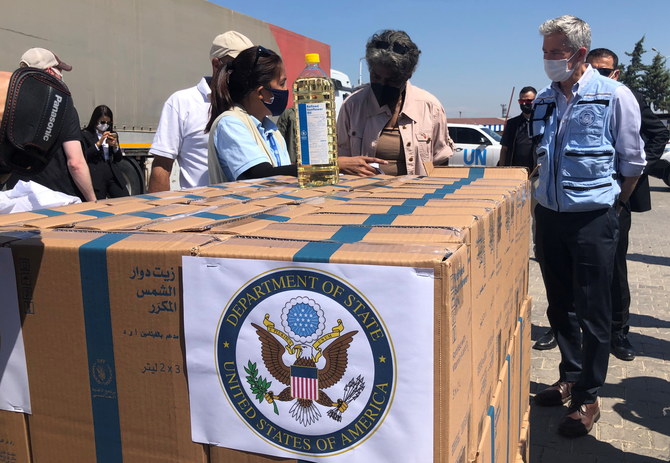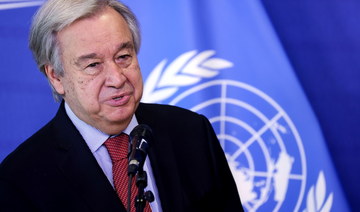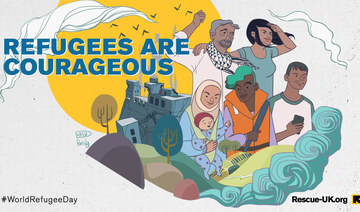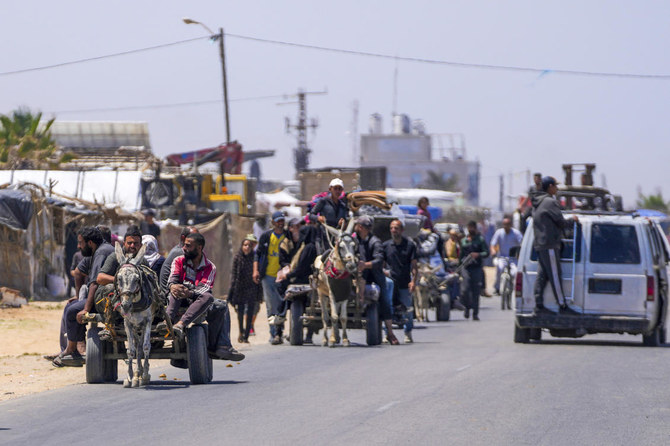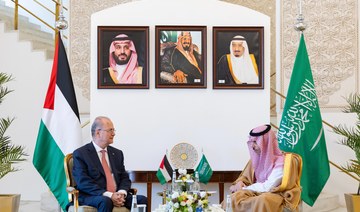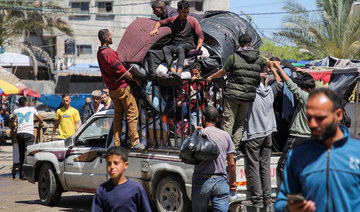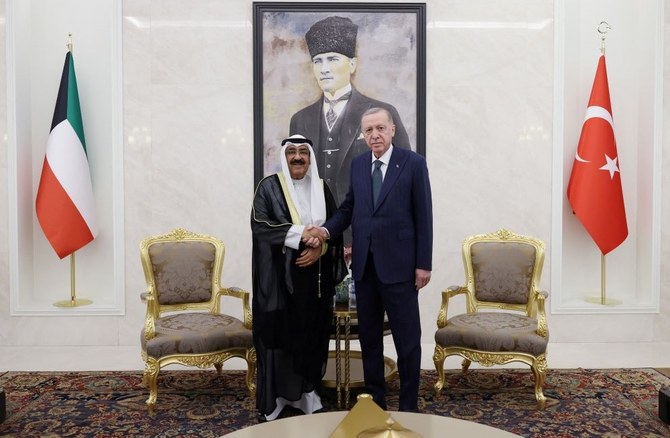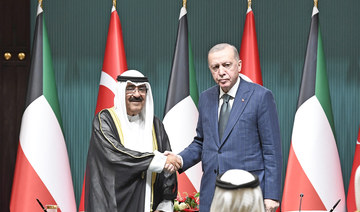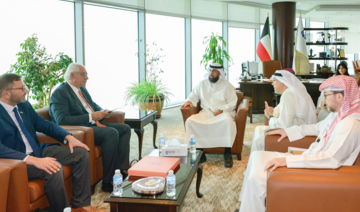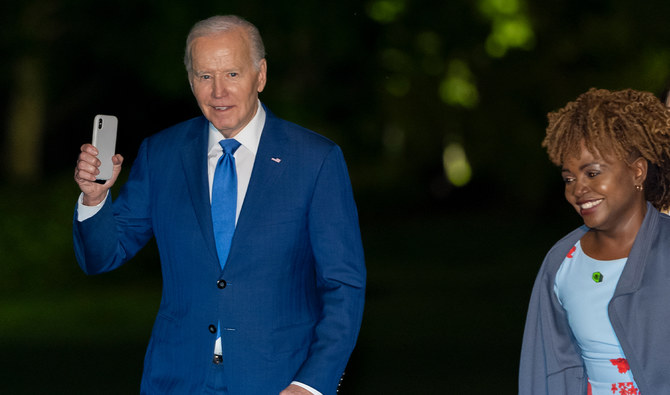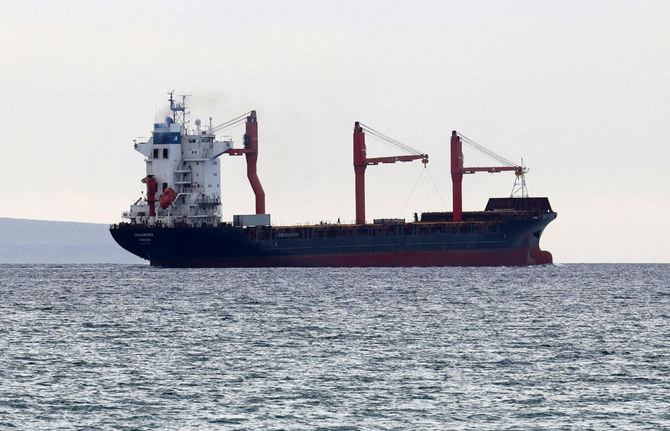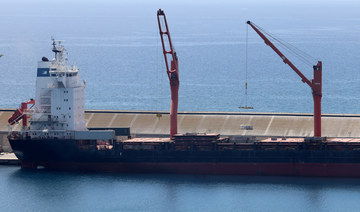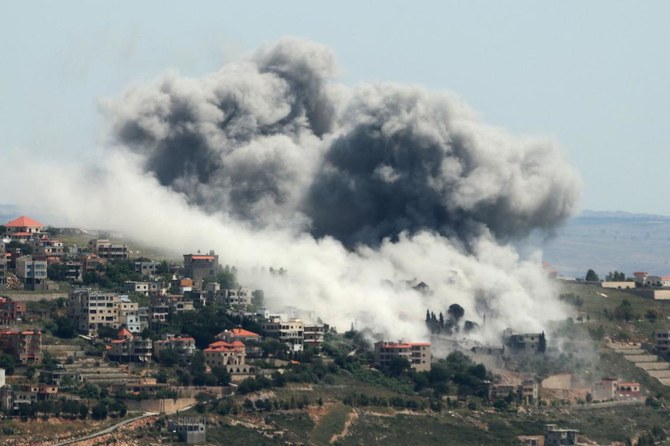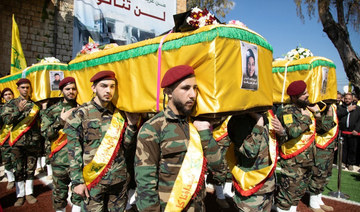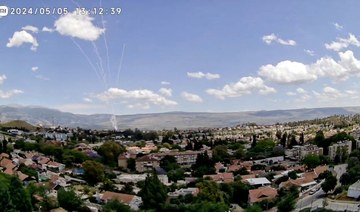LONDON: Senior US state department officials have backed calls for an extension of a UN measure allowing cross-border aid into Syria, saying that it is “critical to avoiding a greater humanitarian catastrophe.”
In a press briefing attended by Arab News on Friday, Acting Assistant Secretary of State for Near Eastern Affairs Joey Hood outlined the US perspective on humanitarian and political developments on the ground in Syria. He also discussed the continued importance of confronting Daesh remnants both militarily and ideologically.
“The US supports all forms of assistance for the Syrian people, including cross-line assistance from Damascus,” Hood said.
Cross-line assistance is named as such to reflect that it involves aid traveling across the front lines of the conflict, from government-held to rebel-held territory.
“The truth is, cross-line assistance alone cannot meet the current needs in Syria,” Hood said. “Cross-border assistance is critical to avoiding a greater humanitarian catastrophe there.”
For this reason, Hood said, the US fully supports efforts to renew a UN Security Council-approved cross-border aid operation into Syria for another year.
The future of this aid lifeline into Syria was thrown into doubt this past week, when Russian President Vladimir Putin, who holds veto power in the security council, questioned the importance of the cross-border aid operation, arguing that aid can be delivered to northern Syria from the capital Damascus. Russia is a long-time ally of Syrian President Bashar Assad and has supported his government militarily and politically throughout the war.
UN Secretary-General Antonio Guterres warned on Friday that “a failure to extend the council’s authorization would have devastating consequences.”
During the briefing, Hood also said that the US supports a nationwide ceasefire to ensure the safe delivery of aid and to “alleviate the suffering of the Syrian people.”
He added that the US is committed to keeping a “limited military presence in the northeast (of Syria) for the sole purpose of defeating ISIS (Daesh), in partnership with the Syria Democratic Forces, and to stabilize areas liberated by that group.
“Stability in Syria and the greater region can only be achieved through a political process that represents the will of all Syrians,” Hood said. “We are committed to working with allies, partners, and the UN to ensure that a durable political solution remains within reach.”
He added: “The international community must renew its shared goal to ensure the protection, dignity, and human rights of the Syrian people. There can be no sustainable end to the conflict without progress in this area.”
Patrick Worman, acting director of the Office of the Global Coalition to Defeat ISIS, warned that despite Daesh’s territorial defeat, it “remains a determined enemy. There is still much work to be done in Iraq and Syria.”
He said that the Joe Biden administration is committed to finishing the fight against Daesh and that this extends to countering their growing influence in other countries, notably in West Africa and the Sahel, where Daesh-affiliated groups have been gaining strength.
The US, he said, would continue to provide support to Iraq in its counter-insurgency operation against Daesh, and that community outreach work would be necessary to counter the group's “depraved ideology.”
“In addition to security, we must also address remaining humanitarian stabilization and early-recovery gaps to help victims of ISIS’ atrocities and others impacted by the conflict recover, and thus minimize ISIS’ recruitment and resurgence ability,” Worman said.
“As part of this civilian effort, ensuring ISIS members are held accountable for their crimes and promoting community-based reconciliation will be critical for countering ISIS messaging and combating ISIS’ depraved ideology.”



